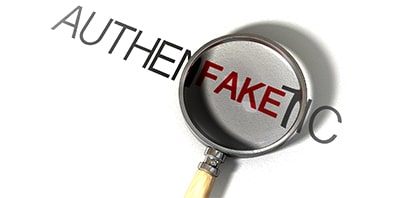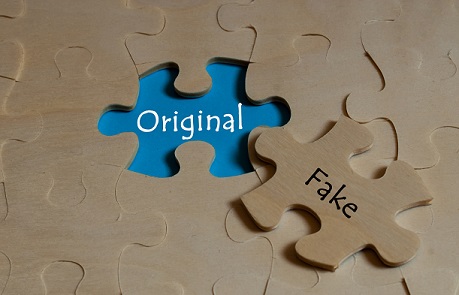Dealing with Counterfeits in the UAE
 Introduction
Introduction
Businesses engaging with counterfeit items in the UAE now risk significantly harsher sanctions, again for legitimate brand owners. The maximum punishment for counterfeiting has been increased from AED 10,000 (about USD 2,700) to AED 1 million (approximately USD 275,000) for pharmaceutical and food items and AED 250,000 (approximately USD 68,000) for other products. Repeat offenses might result in doubled penalties. A new Federal Law on Combating Business Fraud, which repeals the old law combating fraud in commercial transactions from 1979, introduces this long-awaited rise in penalties. Businesses must only deal with authentic merchandise under the UAE's new regulation to prevent counterfeiting (and other forms of economic fraud). Failure to do so will subject those businesses to possible fines and other consequences such as the closing of their business or the revocation of their trading license. To exploit this new law's
Impediment impact, brand proprietors, should ensure that their brand names are enlisted in the UAE.
The following are some of the important attributes of the new law:
- Importing, exporting, re-exporting, manufacturing, selling, displaying, possessing with the purpose to sell, storing, renting, marketing, or dealing with Counterfeit Products are illegal. It's also unlawful to promote counterfeit goods.
- A "Counterfeit Product" bears an identical or similar brand to a registered trademark without permission. This indicates that the law's scope of protection is limited to
- Disciplines fuse jail (up to two years), fines (up to AED 1 million), the finish of premises, and withdrawal of trade licenses. The hardest punishments are held for forgers of drug and food items and habitual perpetrators. Penalties might even be multiplied for the last option. This expansion in fines is a significant and hotly anticipated turn of events.
- The importer will be responsible for the costs incurred by the authorities in disposing of counterfeit products.
- A centralized authority (the Higher Committee) will lead the fight against counterfeiting and oversee the law's implementation at the federal level. However, this authority is not expected to accept complaints, and the new law does not provide a single complaint mechanism.
- A framework for settling infringement has been set up for Counterfeit Products other than drug and food items. It is muddled, in any case, if brand proprietors will play any part in this technique.
- All documentation and information about Counterfeit Products must be provided to the appropriate authorities. This is the sort of thing worth being appreciative of because it will make it clearer to recognize other stock organization people. It's unclear whether this data will be shared with brand owners.
- Counterfeiting is the topic of today's notice. The new regulation in the UAE, on the other hand, is intended to tackle commercial fraud in general. Dealing with tainted or tainted goods, as well as announcing fraudulent or fictitious rewards or discounts, falls under this category.
Overall, the new law is a step forward in the UAE's adoption of international standards for detecting and enforcing trademark infringements. The UAE government has established several mechanisms to protect the rights of brand owners.
 1. Customs authorities provide protection.
1. Customs authorities provide protection.
Brand owners can use customs officials to assert their rights and prevent goods from entering the UAE market that infringes on their trademarks. Rightsholders, in particular, have the option of notifying customs authorities about their trademarks, which are registered with the UAE Trademark Office, so that officials can keep an eye on them. Nonetheless, it ought to be noted that the UAE comes up short on a focal traditions recording framework. Subsequently, every Emirate should direct its recording. The Emirates of Abu Dhabi, Dubai, Sharjah, Ajman, and Ras Al-Khaimah license brand names to be enrolled with their specific customs divisions. Moreover, brand proprietors can and should train cops to acclimate them with the firsts and usual fakes.
2. Prosecution in criminal court
When brand owners discover counterfeit items on the market – for example, through market investigations – they can submit criminal charges with the police or the public prosecutor. The case will be investigated, raids will be conducted, and the case will be forwarded to a criminal court if the allegations are proven. It should be noted that filing a criminal complaint with the police does not require payment of a charge, but the goods must be stored at the complainant's expense until a verdict is rendered. Fines and even prison sentences can be imposed by a criminal court and the confiscation and destruction of infringing items. The UAE Trademark Law (Federal Law No. 37 of 1992, as amended by Federal Law No. 8 of 2002, Art. 37 ff.) and the Anti-Commercial Fraud Law give substantial law establishments to the cures and their degree. The court might additionally arrange for the litigant's premises to be shut and the choice to be distributed at the infringer's cost. When brand owners discover counterfeit items on the market, they can report them to the police or the public prosecutor. It is crucial to understand that filing a criminal complaint with the police does not include paying a fee.
3. Taking civil action
Another choice for brand name owners is to begin a legal contention against the blameworthy party, as indicated by UAE Trademark Law (Federal Law No. 37 of 1992 as changed by Federal Law No. 8 of 2002, Art. 37 ff.). An everyday activity can be dispatched after or without documenting a criminal protest, or it tends to be recorded simultaneously with the criminal procedure. The last option activity benefits from permitting the criminal court to assess proof created in the typical case. If the misdeed, the harms, and the causal connection between the two are demonstrated, the court will grant the freedoms holder's damages. What's more, the infringer may confront a movement boycott.
4. Action was taken by the administration
Administrative actions are a more efficient and cost-effective way to deal with infringements. In Abu Dhabi, Dubai, and Sharjah, they are carried out by the Department of Economic Development (DED). In contrast, in the other Emirates, they are carried out by the Ministry of Economy. Owners of trademarks can register them to ensure that they are tracked. In addition, they can file complaints against infringers. Fines against infringers, as well as confiscation and destruction of property, will be levied for administrative measures, which will include investigations and raids. Repeat violators may face temporary closure of shops, while rights holders in the pharmaceuticals sector may contact the Ministry of Health to report infringements.
 Conclusion
Conclusion
The UAE government has given brand proprietors various viable instruments for battling brand name forging. Counterfeit items can be prohibited from entering the UAE market by customs authorities or confiscated and destroyed by courts or administrative actions, with fines for infringers. It is recommended that rights holders and their Intellectual
Property lawyers collaborate with authorities to build a strategy for utilizing the available resources in their case.
 English
English
 عربي
عربي Русский
Русский 官话
官话 português
português
 Türk
Türk 














